
The town of Marineland was established in 1940, and is in both Flagler and St. Johns counties, Florida, United States. Marineland is located 18 miles (29 km) south of St. Augustine along Route A1A. The population was 15 in the 2020 census.

Gertrude Vanderbilt Whitney was an American sculptor, art patron and collector, and founder in 1931 of the Whitney Museum of American Art in New York City. She was a prominent social figure and hostess, who was born into the wealthy Vanderbilt family and married into the Whitney family.
The Vanderbilt family is an American family who gained prominence during the Gilded Age. Their success began with the shipping and railroad empires of Cornelius Vanderbilt, and the family expanded into various other areas of industry and philanthropy. Cornelius Vanderbilt's descendants went on to build grand mansions on Fifth Avenue in New York City; luxurious "summer cottages" in Newport, Rhode Island; the palatial Biltmore House in Asheville, North Carolina; and various other opulent homes. The family also built Berkshire cottages in the western region of Massachusetts; examples include Elm Court.

Marineland of Florida, one of Florida's first marine mammal parks, is billed as "the world's first oceanarium". Marineland functions as an entertainment and swim-with-the-dolphins facility, and reopened to the public on March 4, 2006. In 2011, the park was purchased by the Georgia Aquarium for a reported $9.1 million.

Underwater habitats are underwater structures in which people can live for extended periods and carry out most of the basic human functions of a 24-hour day, such as working, resting, eating, attending to personal hygiene, and sleeping. In this context, 'habitat' is generally used in a narrow sense to mean the interior and immediate exterior of the structure and its fixtures, but not its surrounding marine environment. Most early underwater habitats lacked regenerative systems for air, water, food, electricity, and other resources. However, some underwater habitats allow for these resources to be delivered using pipes, or generated within the habitat, rather than manually delivered.

Harry Payne Whitney was an American businessman, thoroughbred horse breeder, and member of the prominent Whitney family.
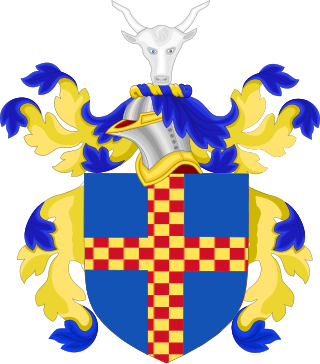
The Whitney family is a prominent American family descended from English immigrant John Whitney (1592–1673), who left London in 1635 and settled in Watertown, Massachusetts. The historic family mansion in Watertown, known as The Elms, was built for the Whitneys in 1710. The Whitneys today occupy a distinguished position in American society as a result of their entrepreneurship, wealth, and philanthropy. They are also members of the Episcopal Church.

Mote Marine Laboratory is an independent, nonprofit, marine research organization based on City Island in Sarasota, Florida, with additional campuses in eastern Sarasota County, Boca Grande, Florida, and the Florida Keys. Founded in 1955 by Eugenie Clark in Placida, Florida, it was known as the Cape Haze Marine Laboratory until 1967. The laboratory aims to advance marine science and education, supporting conservation and sustainable use of marine resources. A public aquarium and associated education program interpret its research for the public.

Marylou Whitney was an American socialite and philanthropist. A prominent owner and breeder of thoroughbred racehorses, Whitney was notable for "reigning for decades as the social queen of the Saratoga and Lexington racing seasons".

Cornelius "Sonny" Vanderbilt Whitney was an American businessman, film producer, government official, writer and philanthropist. He was also a polo player and the owner of a significant stable of Thoroughbred racehorses.
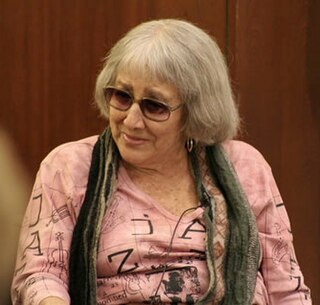
Eugenie Clark, popularly known as The Shark Lady, was an American ichthyologist known for both her research on shark behavior and her study of fish in the order Tetraodontiformes. Clark was a pioneer in the field of scuba diving for research purposes. In addition to being regarded as an authority in marine biology, Clark was popularly recognized and used her fame to promote marine conservation.
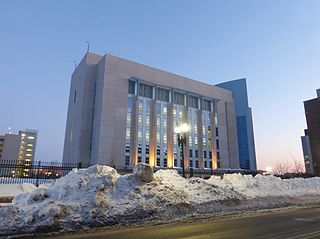
The National Emerging Infectious Diseases Laboratories (NEIDL), is a biosciences facility of Boston University located on Albany street, within the clinical and biopharma hub of the South End neighborhood of Boston, Massachusetts.

John Kuriyan is the dean of basic sciences and a professor of biochemistry at Vanderbilt University School of Medicine. He was formerly the Chancellor's Professor at the University of California, Berkeley in the departments of molecular and cell biology (MCB) and chemistry, a faculty scientist in Berkeley Lab's physical biosciences division, and a Howard Hughes Medical Institute investigator. He is a member of the National Academy of Sciences and he has also been on the Life Sciences jury for the Infosys Prize in 2009, 2019 and 2020.

The College of Biological Sciences (CBS) is one of seven freshman-admitting colleges at the University of Minnesota. Established in 1869 as the College of Science, the College of Biological Science is now located across both the Minneapolis and the St. Paul campuses. As of June 29, 2023, the dean of the College of Biological Sciences is Dr. Saara J DeWalt.
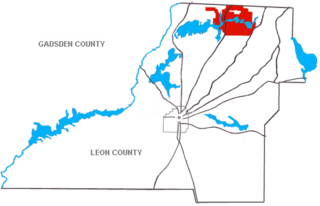
Foshalee Plantation was a large quail hunting plantation located in northern Leon County, Florida, United States.
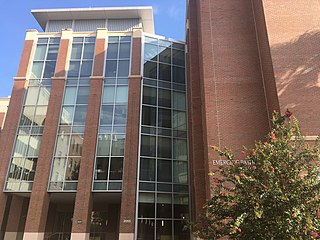
The Emerging Pathogens Institute (EPI) is an interdisciplinary research institution associated with the University of Florida. The institute focuses on fusing key disciplines to develop outreach, education, and research capabilities designed to preserve the region's health and economy, as well as to prevent or contain new and re-emerging diseases. Researchers within the institute work in more than 30 different countries around the world, with over 250 affiliated faculty members stemming from 11 University of Florida colleges, centers, and institutes. The 90,000-square-foot building includes laboratories and collaborative space for bioinformatics and mathematical modeling.

Albany College of Pharmacy and Health Sciences is a private, independent college with a campus in Albany, New York. ACPHS is home to approximately 1,400 students and 115 full-and-part time faculty. As of 2020, it was tied as the 59th-ranked pharmacy school in the US.
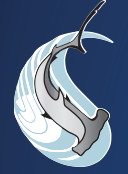
Gulf Specimen Marine Laboratory (GSML) is an independent not-for-profit marine research and education organization and public aquarium in Panacea, Florida, United States.
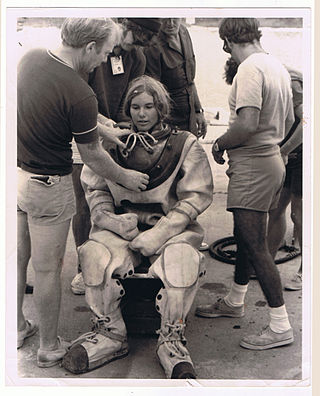
Anne Rudloe was an American marine biologist. She was the co-founder of the Gulf Specimen Marine Laboratory in Panacea, Florida.
Barry W. Ache is an American neuroscientist currently a Distinguished Professor of Biology and Neuroscience at Whitney Laboratory for Marine Bioscience, University of Florida.


















